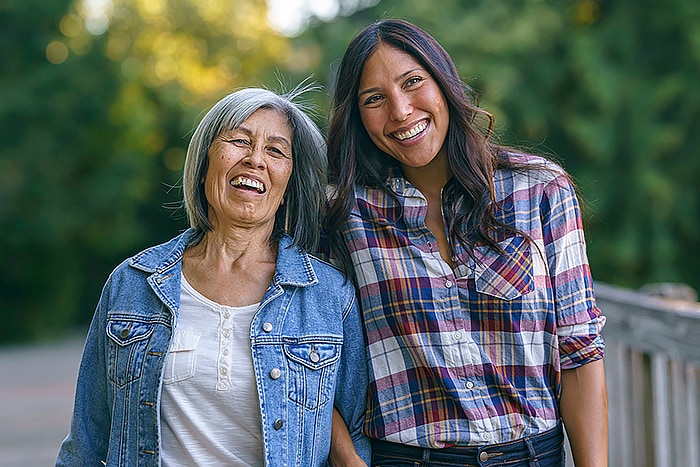Ways to Improve Social Connectedness
Social connection is deeply personal. Small acts of connection lay the groundwork for building supportive, valued, inclusive, and meaningful relationships. Each of us contributes to building meaningful connections in our roles as next-door neighbor, friend, family member, colleague, community member, and global citizen.
While no official guidelines exist, and no one-size-fits-all, below are some suggestions for what people can do to improve social connection:1-8
5 Ways to Improve Social Connection
- Establish and maintain social connections
- Devote time and attention to develop and maintain relationships. Regular contact with others helps build social connectedness.
- Create a larger and more diverse social network. Having more and different types of people in our lives can potentially provide a greater variety of resources, information, and opportunities to help us with life’s many challenges.
- Join a social group to connect with others. Being part of a group with shared interests, values, or goals can be rewarding and foster a sense of belonging.
- Consider the support you give, receive, and have available to you
- Reach out to sources of support to help you through the tough times, even though it can be hard to ask for help sometimes. Members of your family or community, or health care providers can be sources of support.
- Provide support to others—it can give them much-needed help, and make you feel good too!
- But don’t forget to take care of yourself even if you are caring for others.
- Strengthen the quality of social connections
- Focus on building high-quality, strong, meaningful social connections.
- Find ways to be responsive, supportive, and grateful to others.
- Take steps to address conflict or negative feelings when they arise.
- Address barriers to social connection
- Take care of your health. Staying healthy allows you to connect with others socially and enjoy those connections.
- Don’t let technology distract you from engaging with people. Pay attention to ways it might make you feel worse about yourself or others. Try to use it in ways that are positive.
- Making ends meet and busy work schedules can prevent us from carving out time to connect with others. Consider sharing things you already do (like exercising or having a meal) with a friend—or doing new activities with them.
- Talk with a health care provider about concerns like stress, loneliness, and social isolation
- Talk to your doctor or a health professional if you are feeling isolated or lonely, or if there are major changes or stresses in your life. This can help your health care provider identify potential concerns and ways to help you.
- Life changes like new health issues, divorce, retirement, or the loss of a loved one can lead to disconnection. Being open and honest with your health care provider can help them better understand how to help you.

Ideas for increasing social connections
- Spend more quality time with family and friends.
- Join a group, club, or class related to an interest or hobby (books, art, sports).
- Spend time with others in nature.
- Express gratitude to others.
- Volunteer with an organization.
- Get involved in your community.
- Expand and diversify your social network by making a new acquaintance or friend, especially someone who might be different from you.
- Provide social support to others, such as listening to a friend dealing with a problem.
- Get to know your neighbors.
- If you cannot be with others in person, substitute a phone call for screen time.
What Parents Can Do to Promote Social Connections for their Children or Teens
- Model and encourage healthy social connections and relationships.
- Encourage healthy social relationships with a diverse group of peers by creating ways to help them meet people who are different from them.
- Help them develop strong, safe, and stable relationships with supportive adults, such as family members and friends, neighbors, and teachers.
- Talk with them about negative influences or stresses, like peer pressure, feeling rejected or not belonging, which may increase risk for social isolation and loneliness.
- Watch for warning signs of loneliness and isolation and get help for them if needed. For example, pay attention to changes in sleep patterns, energy levels, or behavior like withdrawing from friends and family.
- Be attentive to how they spend time online. Talk to them about the cyberbullying, which can increase risk for social isolation and loneliness.
- Reach out to your health care provider about any concerns or changes in their social connections.